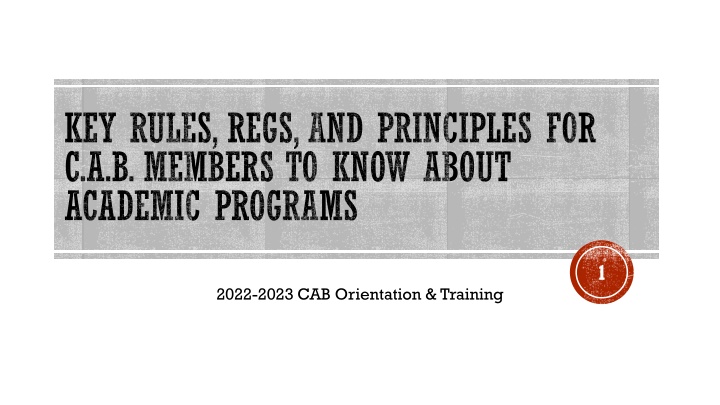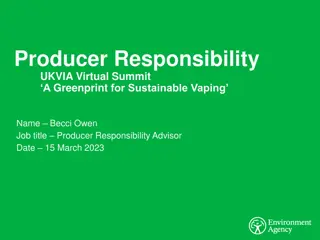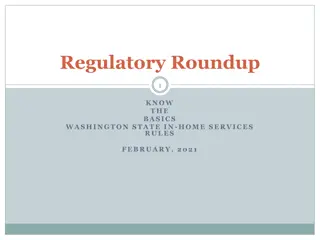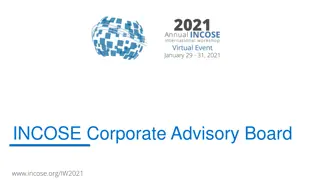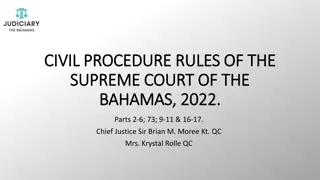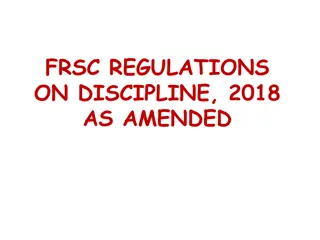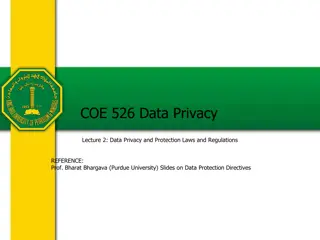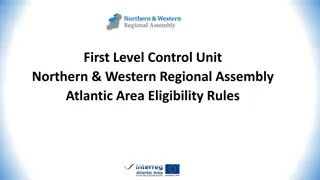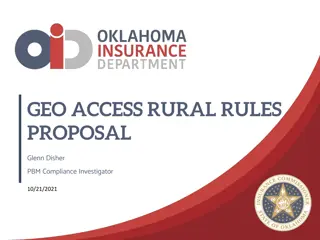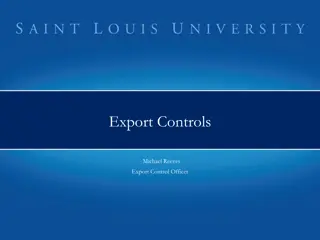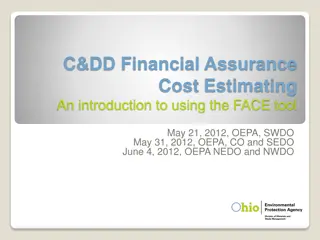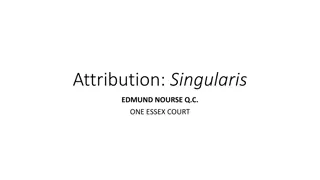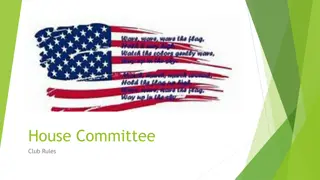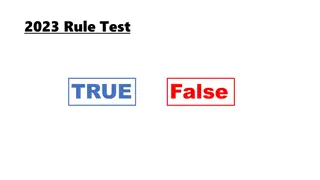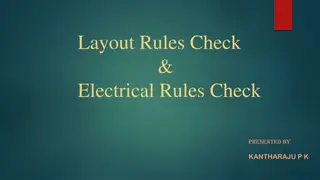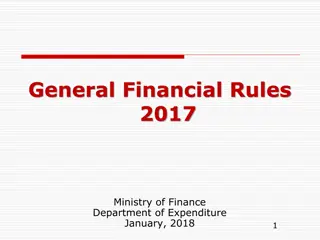Key Rules, Regulations, and Principles for CAB Members
Members of the CAB are provided with essential information regarding academic programs for the 2022-2023 academic year, including key rules, regulations, and principles to be aware of. The content covers important resources, SACSCOC principles of accreditation, Texas Higher Education Coordinating Board regulations, and more. It emphasizes the significance of adherence to guidelines in curriculum development, program structure, and content requirements to maintain accreditation standards.
Download Presentation

Please find below an Image/Link to download the presentation.
The content on the website is provided AS IS for your information and personal use only. It may not be sold, licensed, or shared on other websites without obtaining consent from the author.If you encounter any issues during the download, it is possible that the publisher has removed the file from their server.
You are allowed to download the files provided on this website for personal or commercial use, subject to the condition that they are used lawfully. All files are the property of their respective owners.
The content on the website is provided AS IS for your information and personal use only. It may not be sold, licensed, or shared on other websites without obtaining consent from the author.
E N D
Presentation Transcript
KEY RULES, REGS, AND PRINCIPLES FOR C.A.B. MEMBERS TO KNOW ABOUT ACADEMIC PROGRAMS 1 2022-2023 CAB Orientation & Training
IMPORTANT RESOURCES FOR PRINCIPLES, RULES/REGULATIONS, AND PRACTICES SACSCOC Principles of Accreditation Regulations of the Texas Higher Education Coordinating Board (THECB) Guidelines for Instructional Programs in Workforce Education (GIPWE) Some Good Educational Practices to Implement 2
FIVE IMPORTANT SACSCOC PRINCIPLES OF ACCREDITATION RELATING TO CURRICULA Five Principles of Accreditation are particularly important to the work that CAB conducts: Resource Manual for Principles of Accreditation: https://sacscoc.org/app/uploads/2019/08/2018-POA-Resource-Manual.pdf Section 10 Educational Policies, Procedures, and Practices Principle 10.4 Among others Primary responsibility for the content, quality, and effectiveness of the curriculum is placed with faculty. This standard is embedded within Collin College Board Policy EFA(LOCAL) The process for curriculum development used by the College District is prescribed by several different but connected procedures. At all times the guidelines prescribed by the Texas Higher Education Coordinating Board (THECB) shall be followed. The College District shall have a peer review process to review courses and program additions, deletions, or revisions. The Board shall approve all new programs and program deletions.
FIVE IMPORTANT SACSCOC PRINCIPLES OF ACCREDITATION RELATING TO CURRICULA Section 9 Educational Program Structure and Content Principle 9.1 Required Features/Characteristics of Educational Programs (page 81) Coherent; Consistent with Mission/Goals of Institution; and based upon fields of study appropriate to higher education Principle 9.2 Minimum Length of Educational programs for Associates and Baccalaureate degrees (page 83) Principle 9.3 Core/General Education Curriculum (page 86) Principle 9.4 Requirements for earning credits at degree-granting institution (page 89)
KEY THECB REGULATIONS/RULES- TRANSFER THECB Regulations/Rules are Written as Title 19 Part 1 of the Texas Administrative Code (https://texreg.sos.state.tx.us/public/readtac$ext.viewtac) Chapter 4 Rules Applying to All Public Institutions of Higher Education in Texas Rule 4.28 The Core Curriculum Particularly 4.28(e)which states in part, a student who transfers from one institution of higher education to another without completing the core curriculum of the sending institution must receive academic credit within the core curriculum of the receiving institution for each of the courses that the student has successfully completed in the core curriculum of the sending institution. Following receipt of credit for these courses, the student may be required to satisfy the remaining course requirements in the core curriculum of the receiving institution. Look for this when programs request a single core course to fulfill a core/general education requirement. Only in cases where there is a clear and compelling academic reason for a single core course should this be allowed. (Some examples) Rule 4.29 No institution may adopt a core curriculum of more than 42 SCH.
KEY THECB REGULATIONS/RULES- TRANSFER Rule 4.38 Undergraduate Academic Certificate Undergraduate Academic Certificates may be awarded upon the completion of: (1) The Board-approved core curriculum of the institution (42 SCH core) (2) a Board-approved Field of Study Curriculum (3) a Board-approved statewide articulated transfer curriculum of less than degree length. Chapter 9 Program Development in Public Two-Year Colleges Rule 9.183 Degree Titles, Program Length, and Program Content 9.183(b) Academic associate degree programs must consist of 60 semester credit hours 9.183(c) Exceptions are possible but must be justified with things like accreditation requirements, statutory requirements, the need for more time for students to meet licensure requirements, etc.
KEY THECB REGULATIONS/RULES- TRANSFER 9.183(d)- Except as provided in paragraphs (1), (2) and (3) of this subsection, academicassociate degree programs must incorporate the institution s approved core curriculum as prescribed by 4.28 of this title (relating to Core Curriculum) and 4.29 of this title (relating to Core Curricula larger than 42 SCH). 9.183(d) (1) - A college may offer a specialized academic associate degree that incorporates a Board-approved field of study curriculum and a portion of the college's approved core curriculum if the coursework for both would total more than 60 SCH; or 9.183(d) (2) - A college may offer a specialized academic associate degree that incorporates a voluntary statewide transfer compact and a portion of the college's approved core curriculum if the coursework for both would total more than 60 SCH. 9.183(d) (3) - A college that has a signed articulation agreement with a General Academic Teaching Institution to transfer a specified curriculum may offer a specialized AA or AS (but not AAT) degree program that incorporates that curriculum.
KEY THECB REGULATIONS/RULES- WORKFORCE PROGRAMS Rule 9.93 Presentation of Requests and Steps for Implementation of new Degree and Certificate Programs in Career Technical/Workforce Education 9.93 (3) - If the number of SCH required to complete a proposed associate's program exceeds 60, the institution must provide detailed written documentation describing the compelling academic reason for the number of required hours, such as programmatic accreditation requirements, statutory requirements, or licensure/certification requirements that cannot be met without exceeding the 60-hour limit. Collin College has four programs in disciplines that have been granted exceptions to the 60-SCH limit.
KEY THECB REGULATIONS/RULES- WORKFORCE PROGRAMS-GIPWE Guidelines for Instructional Programs in Workforce Education (GIPWE) The THECB authored manual on how to structure and operate Workforce Education programs. Can be found by googling GIPWE . It will be the first link that pops up in the search. General Structure of Workforce Programs: One AAS degree, 60 semester credit hours (SCH) Two level one certificates, each between 15-42 SCH One level two certificate between 30-51 SCH Enhanced Skills Certificates (level three certificate) of between 6-12 SCH Continuing Education Certificates of 360-779 contact hours Advanced Technical Certificate of 16-45 SCH Awards should be stackable (i.e. certificates stack into AAS degree)
KEY THECB REGULATIONS/RULES- WORKFORCE PROGRAMS-GIPWE Courses in workforce education programs MUST come from the Academic Course guide Manual (ACGM) or the Workforce Education Course Manual (WECM) or be approved local needs courses. Choice of prerequisites ALL college-level, non-developmental courses that are required course prerequisites and/or requirements for entry into a degree or certificate MUST be included in the total hours for the credential and must be clearly identified in the proposed curriculum plan. (An AAS degree MUST be structured to be completed in 2.5 years of full-time attendance, including prerequisites.) Course Prerequisites Program Prerequisites Course Sequencing Curricula must demonstrate appropriate course sequencing to promote student attainment of knowledge, skills, and abilities. For example a program may not enroll a student in both a course and its prerequisite in the same semester, unless both courses can be delivered in a compressed format without an overlap in the two courses.
KEY THECB REGULATIONS/RULES- WORKFORCE PROGRAMS-GIPWE AAS degree programs in workforce education should have a technical component with 50-75% of the course credits drawn from a common technical specialty. This ensures that each degree or certificate program has a clearly defined subject matter focus and provides students with opportunities for employment and career advancement. General Education requirements of workforce programs in agreement with SACSCOC Principle 9.3 the general education component of an AAS degree MUST include at least 15 SCH of general education courses with a distribution that must include: 3 SCH of Mathematics/Natural Sciences (Mathematics or Life & Physical Sciences FCA s) 3 SCH of Social/Behavioral Sciences (Social/Behavioral Sciences, History and Government FCA s) 3 SCH of Humanities/Creative Arts (Language, Philosophy, Culture or Creative Arts FCA s
KEY THECB REGULATIONS/RULES- WORKFORCE PROGRAMS-GIPWE Program Specializations variations within one AAS degree that allows students to take a sequence of courses based upon their career objectives. A specialization does NOT result in a different AAS degree and is not listed separately in the THECB program inventory, so a student may NOT earn more than one degree in the discipline. However a specialization may result in the award of separate certificate credentials. The specialization must match the program CIP code of the approved credential and must have 50% of the technical specialty component (including WECM and ACGM courses) in common. Examples in the Collin Catalog are shown as Tracks For example see Computer Networking (five tracks), Computer Systems (three tracks), Health Professions (five tracks), Hospitality and Food Service (two tracks) Contrast with Construction Technology Programs that separate out Electrical, Plumbing, Carpentry, Facilities Management, and Safety as separate programs.
KEY THECB REGULATIONS/RULES- WORKFORCE PROGRAMS- GIPWE
GOOD EDUCATIONAL PRACTICES TO IMPLEMENT Course Sequencing Ask questions about how effectively the program has embedded the general education courses into the technical content of the AAS degrees. (Remember the need for coherent programs from SACSCOC Principle 9.1) General Education is what separates a degree from a certificate. Ask questions about key gateway courses (ENGL 1301 and MATH if required). Are these recommended to be completed in the first year of the program? Research shows that students who complete these key courses early in their academic career complete at significantly higher rates than those students that do not. See CCRC Research Briefs for some additional information Pay attention to course prerequisites make sure that we have not developed a sequence for the catalog that has a course being recommended to be taken before its prerequisite (including elective options).
GOOD EDUCATIONAL PRACTICES TO IMPLEMENT Course Prerequisite Requests Please ask questions of faculty requesting that Prerequisite or Prerequisite/Concurrent Enrollment be added to a course (or removed, or even changed). Additionally, for academic transfer (i.e. ACGM courses) if departments come forward with requested changes to prerequisites, please ask questions about: a) State-mandated prerequisites these should/must be utilized (in theory higher level prerequisites could be set, but see the item below ) b) For requests for higher than state-mandated prerequisites, please ask about practices at universities, including our major transfer partners. Should students have more challenging prerequisites at Collin College than they face at universities? Philosophically, prerequisites can be both good and bad for students. Good Proper preparation for success in a subsequent course (or corequisite course) Bad Can unnecessarily limit the ability of students to complete a program in a timely fashion, can limit the ability of students to progress through a program while waiting for a course to be offered again.
